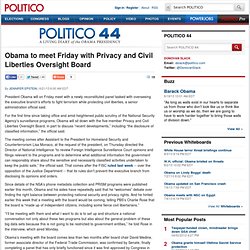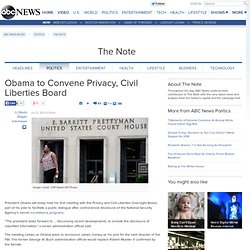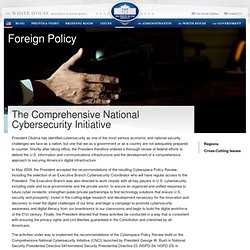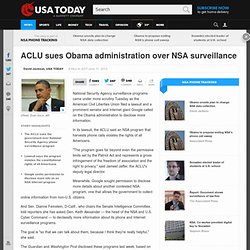

Obama to meet Friday with Privacy and Civil Liberties Oversight Board. President Obama will on Friday meet with a newly reconstituted panel tasked with overseeing the executive branch's efforts to fight terrorism while protecting civil liberties, a senior administration official said.

For the first time since taking office and amid heightened public scrutiny of the National Security Agency’s surveillance programs, Obama will sit down with the five-member Privacy and Civil Liberties Oversight Board, in part to discuss “recent developments,” including “the disclosure of classified information,” the official said. Since details of the NSA’s phone metadata collection and PRISM programs were published earlier this month, Obama and his aides have repeatedly said that he “welcomes” debate over finding the right balance between protecting national security and privacy rights. Created by 2004’s Intelligence Reform and Terrorism Prevention Act, the board has only briefly functioned. The areas where the administration has offered information include: A. B. C. D. Obama to Convene Privacy, Civil Liberties Board. Jun 21, 2013 6:00am Image credit: Cliff Owen/AP Photo President Obama will today hold his first meeting with the Privacy and Civil Liberties Oversight Board, part of his plan to facilitate a public dialogue after controversial disclosure of the National Security Agency’s secret surveillance programs.

“The president looks forward to … discussing recent developments, to include the disclosure of classified information,” a senior administration official said. The meeting comes as Obama plans to announce James Comey as his pick for the next director of the FBI. The former George W. The little-known oversight board was created in 2004 to review anti-terrorism programs implemented by the executive branch. The newly reconstituted board is chaired by Obama appointee David Medine, a former associate director of the Federal Trade Commission. SHOWS: Nightline This Week World News. The Comprehensive National Cybersecurity Initiative. President Obama has identified cybersecurity as one of the most serious economic and national security challenges we face as a nation, but one that we as a government or as a country are not adequately prepared to counter.

Shortly after taking office, the President therefore ordered a thorough review of federal efforts to defend the U.S. information and communications infrastructure and the development of a comprehensive approach to securing America’s digital infrastructure. In May 2009, the President accepted the recommendations of the resulting Cyberspace Policy Review, including the selection of an Executive Branch Cybersecurity Coordinator who will have regular access to the President. The activities under way to implement the recommendations of the Cyberspace Policy Review build on the Comprehensive National Cybersecurity Initiative (CNCI) launched by President George W. CNCI Initiative Details Initiative #1. Initiative #2. Initiative #3. Initiative #5. Initiative #6. ACLU sues Obama administration over NSA surveillance.
National Security Agency surveillance programs came under more scrutiny Tuesday as the American Civil Liberties Union filed a lawsuit and a prominent senator and Internet giant Google called on the Obama administration to disclose more information.

In its lawsuit, the ACLU said an NSA program that harvests phone calls violates the rights of all Americans. "The program goes far beyond even the permissive limits set by the Patriot Act and represents a gross infringement of the freedom of association and the right to privacy," said Jameel Jaffer, the ACLU's deputy legal director. Meanwhile, Google sought permission to disclose more details about another contested NSA program, one that allows the government to collect online information from non-U.S. citizens.